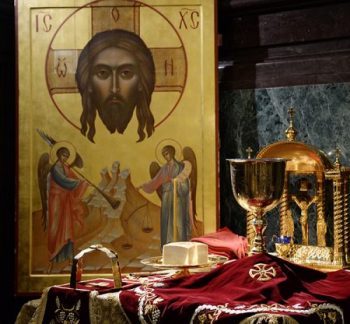Palms Sunday Celebrations
Palm Sunday commemorates the Christian belief in the triumphal entry of Jesus into Jerusalem, when he was greeted by cheering crowds waving palm branches that they set out on the ground along his path, according to the Bible. This year, Palm Sunday falls on April 28.
Palm Sunday is a solemn reminder of Christ’s love and sacrifice. As Jesus rode into Jerusalem on a young donkey, the crowds hailed Him as their king and Savior. This event marked the beginning of Holy Week, where we reflect on Christ’s Love to the cross.
The Triumphal Entry of Jesus into Jerusalem on Palm Sunday was a significant event that fulfilled prophecy, revealed Jesus’ humility, and foreshadowed His death and resurrection. As we commemorate this day, we should remember that Jesus came not to conquer by force but to win hearts by love.
Palm Sunday is often celebrated with processions and distribution of blessed palm leaves. In some churches, the palms are saved and burned into ashes to be used on Ash Wednesday of the next year. Some Christians fold the palm fronds into crosses and keep them in their homes

Τι γιορτάζουμε την Κυριακή των Βαίων
Η Κυριακή των Βαΐων ή αλλιώς η Βαϊοφόρος Κυριακή είναι μια από τις μεγαλύτερες εορτές της ορθόδοξης Εκκλησίας μας. Είναι η προηγούμενη Κυριακή πριν την Ανάσταση του Ιησού που μας εισάγει στην τελευταία εβδομάδα και την πιο σημαντική της Σαρακοστής, την Μεγάλη Εβδομάδα. Από αυτήν την ημέρα και για επτά μέρες θα δούμε να εξελίσσεται το Θείο Δράμα.
Την Κυριακή των Βαΐων γιορτάζουμε την πανηγυρική είσοδο του Χριστού στα Ιεροσόλυμα, ο οποίος ερχόμενος από τη Βηθανία, εισήρθε στη πόλη πάνω σε ένα γαϊδουράκι με τις χαρμόσυνες επιφυμίες του κόσμου να ακούγονται από παντού. Μικροί και μεγάλοι ζητωκραύγαζαν το «Ωσαννά» κρατώντας στα χέρια τους κλαδιά από βάγια, δηλαδή κλαδιά από φοίνικες, ενώ έστρωναν στο διάβα Του τα ιμάτιά τους για να περάσει.
Από εκεί φυσικά πήρε το όνομά της αυτή η ξεχωριστή Κυριακή. Του επιφύλασσαν μια θριαμβευτική υποδοχή όπως άρμοζε σε βασιλείς εκείνη την εποχή γιατί Τον υποδέχτηκαν ως τον Βασιλέα του Ισραήλ. Ωστόσο η έλευση του Ιησού στην Ιερουσαλήμ συμβολίζει την είσοδό Του στα μαρτύρια που επακολουθούν με αποκορύφωμα την Σταύρωσή Του.
Τα έθιμα της Κυριακής των Βαΐων στην Ελλάδα
Καθώς αυτή η ημέρα έχει μεγάλη σημασία για την Ορθοδοξία μας από τα πρώτα κιόλας χρόνια του χριστιανισμού αναπτύχθηκαν διάφορα έθιμα που πολλά από αυτά επιβιώνουν έως στις μέρες μας. Πρώτα από όλα, για να τιμηθεί αυτή η ξεχωριστή μέρα στολίζονται όλοι οι ναοί με κλαδιά από δάφνες, φοίνικες, μυρτιές ή ελιές ενώ κατά το τέλος της λειτουργίας μοιράζονται στους πιστούς τα βάγια και σταυρουδάκια φτιαγμένα απο τα φύλλα των φοινικών.
Στα βυζαντινά χρόνια ο αυτοκράτορας ήταν εκείνος που μοίραζε βάγια και σταυρούς στο πλήθος. Τα κλαδιά αυτά, σε πολλά σημεία της χώρας μας, τα απέδωσαν δυνάμεις ιαματικές αλλά και αποτρεπτικές από το κακό μάτι. Τα κρατούσαν στο εικονοστάσι για προστασία, τα κρεμούσαν στις εισόδους των σπιτιών, στα δε νιόπαντρα ζευγάρια τα μοίραζαν για το καλό του γάμου τους. Τα κρεμούσαν ακόμα και στα οπωροφόρα δέντρα και στα κηπευτικά τους. Πίστευαν πως με αυτό τον τρόπο βοηθούσαν την καρποφορία τους και έδιωχναν τα βλαβερά έντομα.
Παραδοσιακά την Κυριακή των Βαΐων, όπως και την ημέρα του Ευαγγελισμού της Θεοτόκου, κατ’ εξαίρεση επιτρέπεται να καταναλωθεί το ψάρι, το λάδι και το κρασί. Αν και βρίσκεται στο τέλος του σαραντάημερου της νηστείας και ξεκινά η νηστεία της Μεγάλης Εβδομάδας, σεβόμενοι την σπουδαιότητα της γιορτής αυτής, οι Πατέρες της εκκλησίας μας καθιέρωσαν την βρώση του ψαριού.
ΠΡΟΗΓΙΑΣΜΕΝΗ ΛΕΙΤΟΥΡΓΙΑ
 Στη διάρκεια της Μεγάλης και Αγίας Τεσσαρακοστής δεν τελούνται Λειτουργίες τις καθημερινές. Για να μην στερηθούν οι πιστοί το δώρο της Θείας Ευχαριστίας, γίνονται Λειτουργίες κάθε Τετάρτη βράδυ, που αρχίζουν με την ακολουθία του Εσπερινού και συνεχίζονται με την Αναφορά σέ σύντμηση, με το σώμα και το αίμα του Κυρίου που έχουν καθαγιαστεί στην Λειτουργία της Κυριακής και χρησιμοποιούνται στη βραδινή Λειτουργία των Προηγιασμένων δώρων.
Στη διάρκεια της Μεγάλης και Αγίας Τεσσαρακοστής δεν τελούνται Λειτουργίες τις καθημερινές. Για να μην στερηθούν οι πιστοί το δώρο της Θείας Ευχαριστίας, γίνονται Λειτουργίες κάθε Τετάρτη βράδυ, που αρχίζουν με την ακολουθία του Εσπερινού και συνεχίζονται με την Αναφορά σέ σύντμηση, με το σώμα και το αίμα του Κυρίου που έχουν καθαγιαστεί στην Λειτουργία της Κυριακής και χρησιμοποιούνται στη βραδινή Λειτουργία των Προηγιασμένων δώρων.
Με αυτό τον τρόπο οι πιστοί ενδυναμώνονται με το δώρο της Θείας Ευχαριστίας σε αυτή την περίοδο των πνευματικών αγώνων.
Η πρώτη Προηγιασμένη Λειτουργία για φέτος είναι η Τετάρτη 20 Μαρτίου 2024.
PRESANCTIFIED LITURGY
During the 40-day Lenten period there are no Divine Liturgies on weekdays.
In order not to deprive the faithful of the gift of the Eucharist, there are Presanctified Liturgies every Wednesday evening, which begin with vespers and continue with the Anaphora prayers in shortened form, because the body and blood of the Lord that have been consecrated in the Sunday Liturgy and are used in the evening service of the Presanctified gifts.
In this way the faithful are strengthened by the gift of the Eucharist in this period of spiritual struggles.
The first Presanctified Liturgy this year is on Wednesday 20 March 2024.



 Στη διάρκεια της Μεγάλης και Αγίας Τεσσαρακοστής δεν τελούνται Λειτουργίες τις καθημερινές. Για να μην στερηθούν οι πιστοί το δώρο της Θείας Ευχαριστίας, γίνονται Λειτουργίες κάθε Τετάρτη βράδυ, που αρχίζουν με την ακολουθία του Εσπερινού και συνεχίζονται με την Αναφορά σέ σύντμηση, με το σώμα και το αίμα του Κυρίου που έχουν καθαγιαστεί στην Λειτουργία της Κυριακής και χρησιμοποιούνται στη βραδινή Λειτουργία των Προηγιασμένων δώρων.
Στη διάρκεια της Μεγάλης και Αγίας Τεσσαρακοστής δεν τελούνται Λειτουργίες τις καθημερινές. Για να μην στερηθούν οι πιστοί το δώρο της Θείας Ευχαριστίας, γίνονται Λειτουργίες κάθε Τετάρτη βράδυ, που αρχίζουν με την ακολουθία του Εσπερινού και συνεχίζονται με την Αναφορά σέ σύντμηση, με το σώμα και το αίμα του Κυρίου που έχουν καθαγιαστεί στην Λειτουργία της Κυριακής και χρησιμοποιούνται στη βραδινή Λειτουργία των Προηγιασμένων δώρων.













